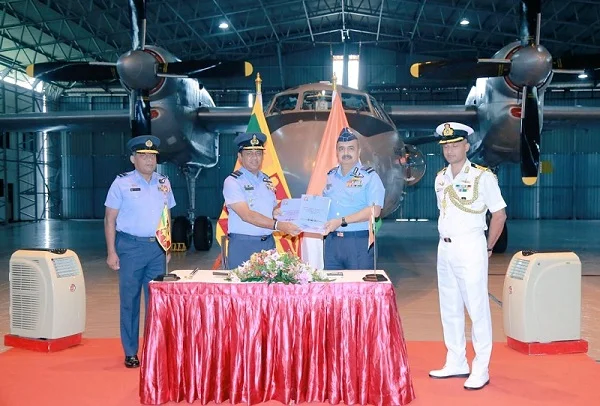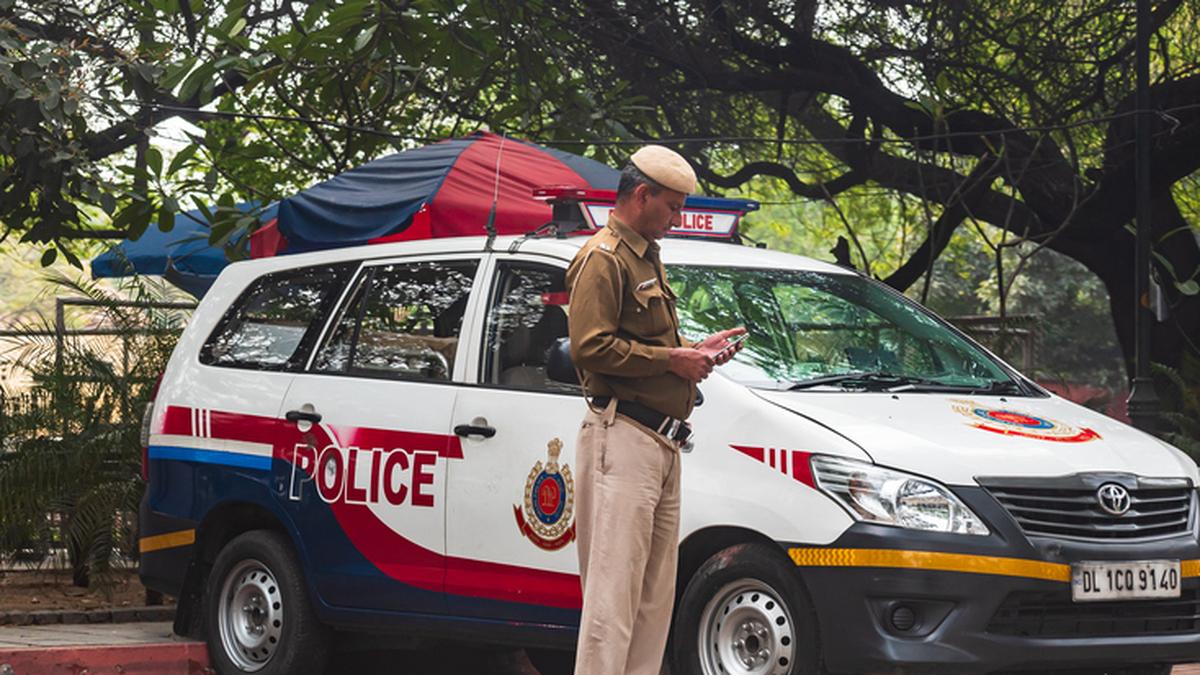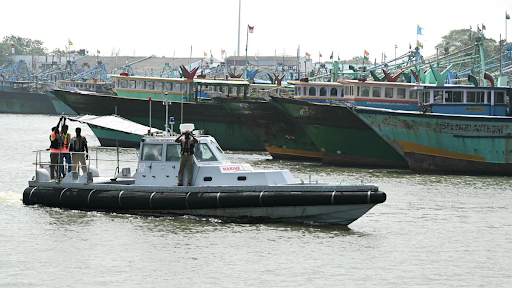Description

Disclaimer: Copyright infringement not intended.
Context
- Forging a strong defence partnership with friendly countries and partners in the region, India gifted a Fast Patrol Vessel and a Landing Craft Assault ship to the Maldives and donated propellers of Antonov AN-32 military transport aircraft to Sri Lanka.
Details
- Key maritime neighbours, both countries occupy an important place in Prime Minister Narendra Modi’s strategic vision for the Indian Ocean Region (IOR) guided by Security and Growth for All in the Region (SAGAR) and ‘Neighbourhood First’ policy.
- Quite significantly, both geo-strategically important nations have also been lured for long by China’s Belt and Road Initiative (BRI) infrastructural projects.
- India offers an enhanced defence partnership to friendly foreign countries, that is “accommodative of their national priorities and capacities”.
Antonov-32s gift to Sri Lanka
- The three Ukrainian-built Antonov-32s were inducted into the Lankan Air Force in 1995 and played a vital role during the bloody 30-year civil war.
- Last year, an Indian Navy Dornier was handed over to Sri Lanka for a period of two years.

Antonov An-32 Light Multipurpose Transport Aircraft
- An-32 is a twin engine, tactical light transport aircraft designed and manufactured by Antonov Design Bureau of Ukraine for the Indian Air Force (IAF).
- Its NATO reporting name is Cline.
- The An-32 is derived from the An-26 transport aircraft.
- An-32 aircraft has ten variants.
- It is a transport aircraft.
- An-32 can fly at a maximum speed of 530km/h and its cruise speed is 470km/h.
- The range and service ceiling of the aircraft are 2,500km and 9,500m, respectively.
Indian scenario
- The IAF awarded a $400m contract to Antonov in 2009 to overhaul its existing 105 An-32 fleet with advance avionics, communication equipment, and landing aids.
- The upgrade will increase the lifespan of the aircraft by 15 to 40 years.
About SAGAR
- India’s Prime Minister Narendra Modi has shown a proactive approach in terms of Indian Ocean Region. This is reflected in his SAGAR Initiative which stands for ‘Security and Growth for All in the Region’. The initiative was launched at Mauritius in 2015.
Strengths
- India’s greatest strength in SAGAR initiative is its central location in the Indian Ocean, which provides India with an unrestricted access to Indian Ocean Region.
- The doctrine will help in leveraging the blue economy.
- SAGAR also provides India to maintain strategic partnerships with the littoral states of Indian Ocean Region in Asia and Africa.
- It provides India a leadership role and responsibility to engage in capacity building and capability enhancement programmes in the region particularly in a transparent manner.
- The policy is highly relevant and can be interlinked to India’s other maritime initiatives such as the Act East Policy, Project Mausam, Project Sagarmala, Blue Economy etc.
-min.jpg)
Weaknesses
- India has the capability to offer maritime assets to other littoral states but it has limited capacity to execute them.
- Another shortcoming in SAGAR policy is the lack of engagement of private sector along the lines of the initiative as well as engagement of multiple players, duplication of actions, as well as regional dependence on international navies.
Opportunities
- SAGAR has provided India with the opportunity to gain leverage in the Indian Ocean Region.
- Recently, India was also granted the observer status in Indian Ocean Commission (IOC). Learning from and supporting sub-regional organisations like IOC can be a major objective of India’s maritime policy.
- India’s SAGAR initiative can be utilised in reference to ‘Project Sagarmala’.
- Coast Guard Agencies play an integral role while engaging with the littoral states. Due to this reason, SAGAR vision should expand itself and include Coast Guard agencies of the IOR littoral countries.
- Another important opportunity which lies ahead of India with regards to the potential of oceans and marine areas is to achieve the sustainable development goals.
Threats
- China has begun to act like a sea power in international affairs.
- The security implications of China’s maritime strategy into the Indian Ocean need to be evaluated.
- In such a scenario it becomes important for India to initiate a more robust maritime strategy.
About Neighbourhood First
- India’s Neighbourhood First policy can also be seen as a manifestation of the Modi government’s vision of building a Vasudhaiva Kutumbakam (the world as one family).
- Vaccine diplomacy and development assistance based on mutual respect and equal partnership are two of the most important pillars to catapult India’s Neighbourhood First policy.
- Keeping with the spirit of Vasudhaiva Kutumbakam, India is also providing all possible help to Afghanistan and Sri Lanka to address their myriad challenges through its development assistance initiative.
- The Indian government has allocated INR62,920 million in its budget for 2022-23 for development assistance to countries in India’s neighbourhood and Africa and Latin America.
- As part of the development assistance, the Indian government allocated INR22,660 million to Bhutan, INR7,500 million to Nepal, INR6,000 million to Myanmar, INR3,600 million to the Maldives, INR3,000 million to Bangladesh and INR2,000 million to Sri Lanka, respectively.
- There are more reasons to push for the Neighbourhood First policy in the future:
- First, sustained engagement with the neighbouring countries will facilitate creating a cordial atmosphere in the region.
- Second, by extending necessary assistance, India can strengthen its position in the region and achieve both economic and strategic depth vis-à-vis China.
- Third, priority should be given to people-to-people connections and deep cultural affinities for sustained cordiality and stability.
|
PRACTICE QUESTION
Q) India offers an enhanced defence partnership to friendly foreign countries, that is “accommodative of their national priorities and capacities”. Discuss. (150 words)
|

https://www.indianarrative.com/world-news/no-longer-enamoured-by-china-indian-ocean-countries-rediscover-historic-bond-with-india-138722.html










